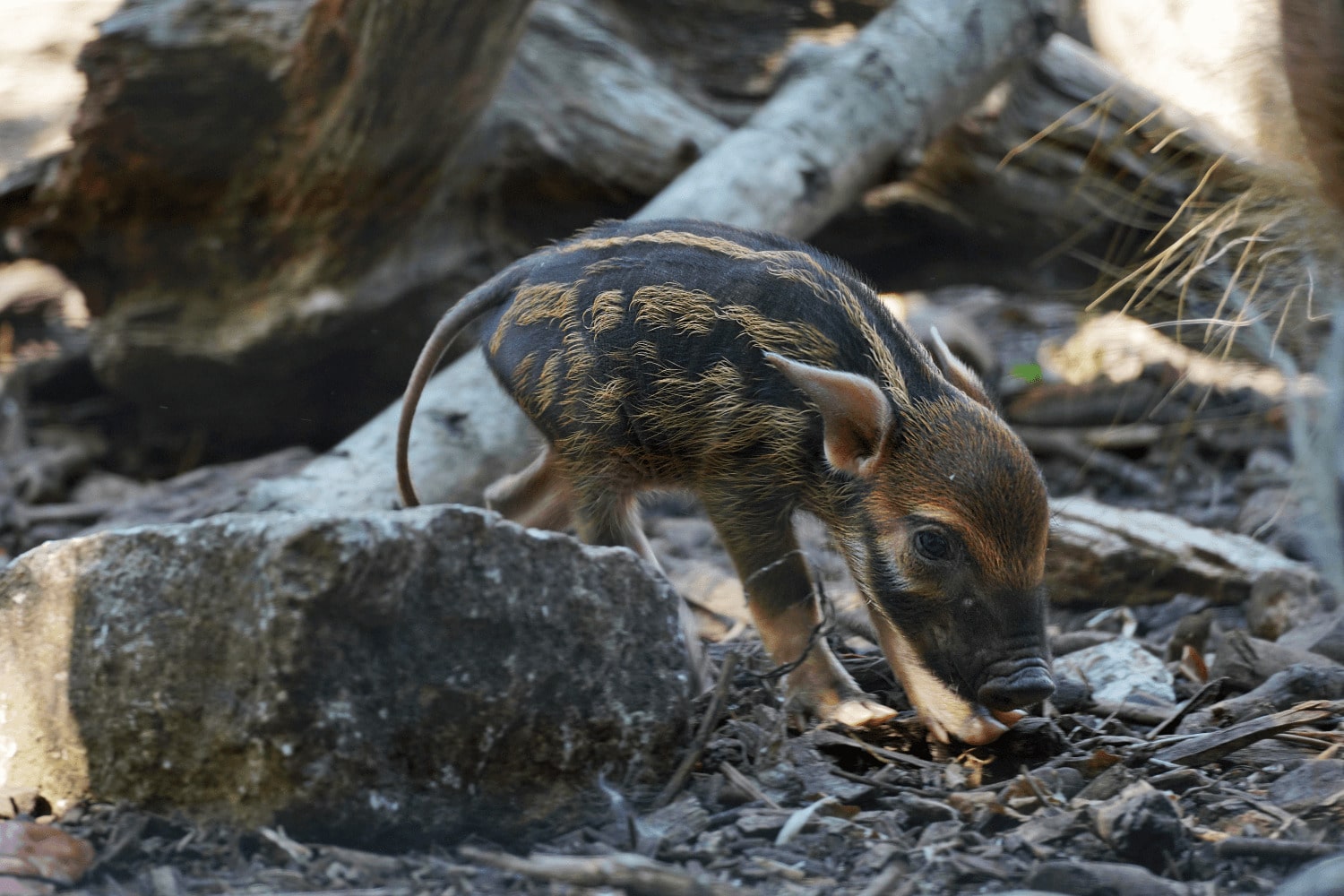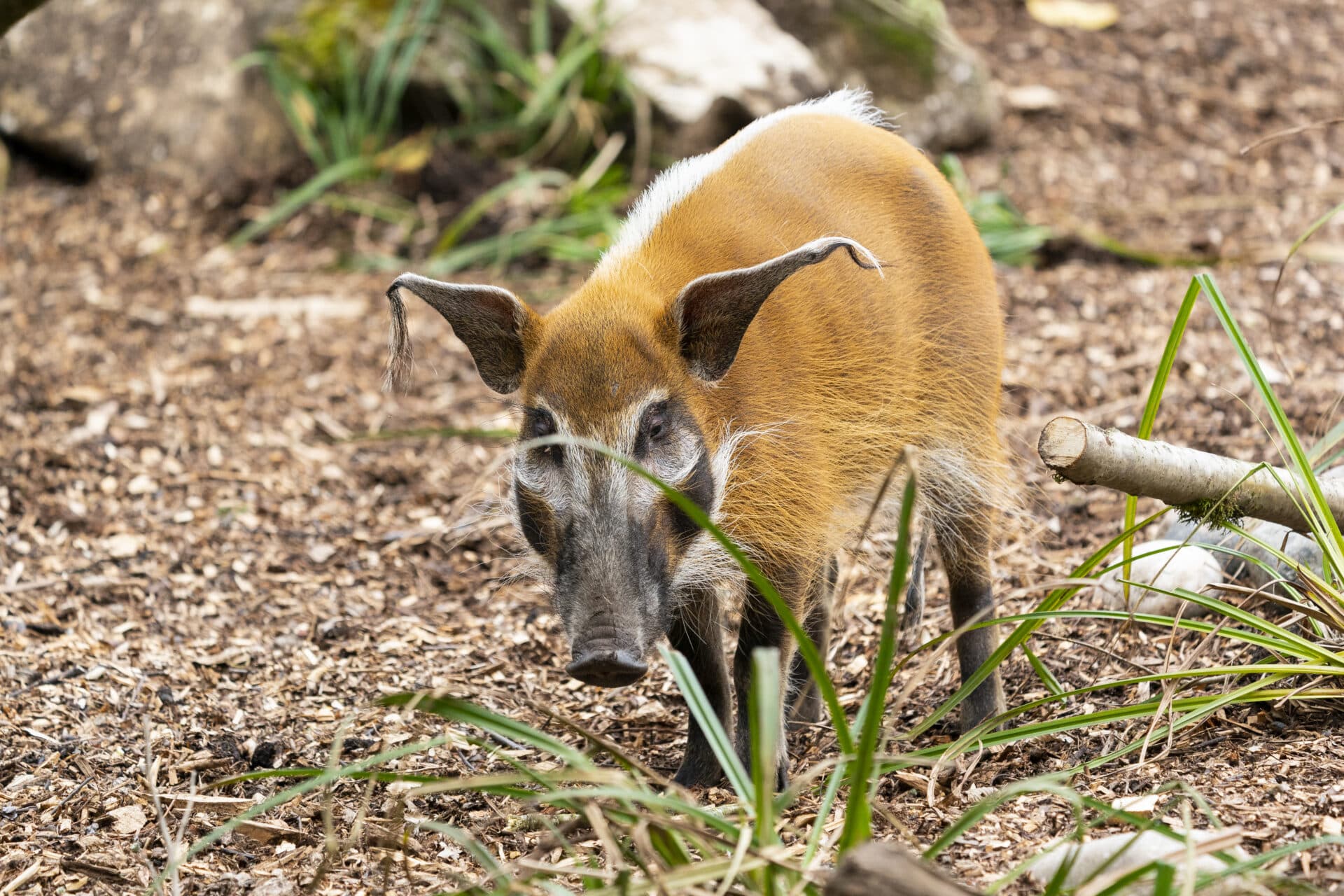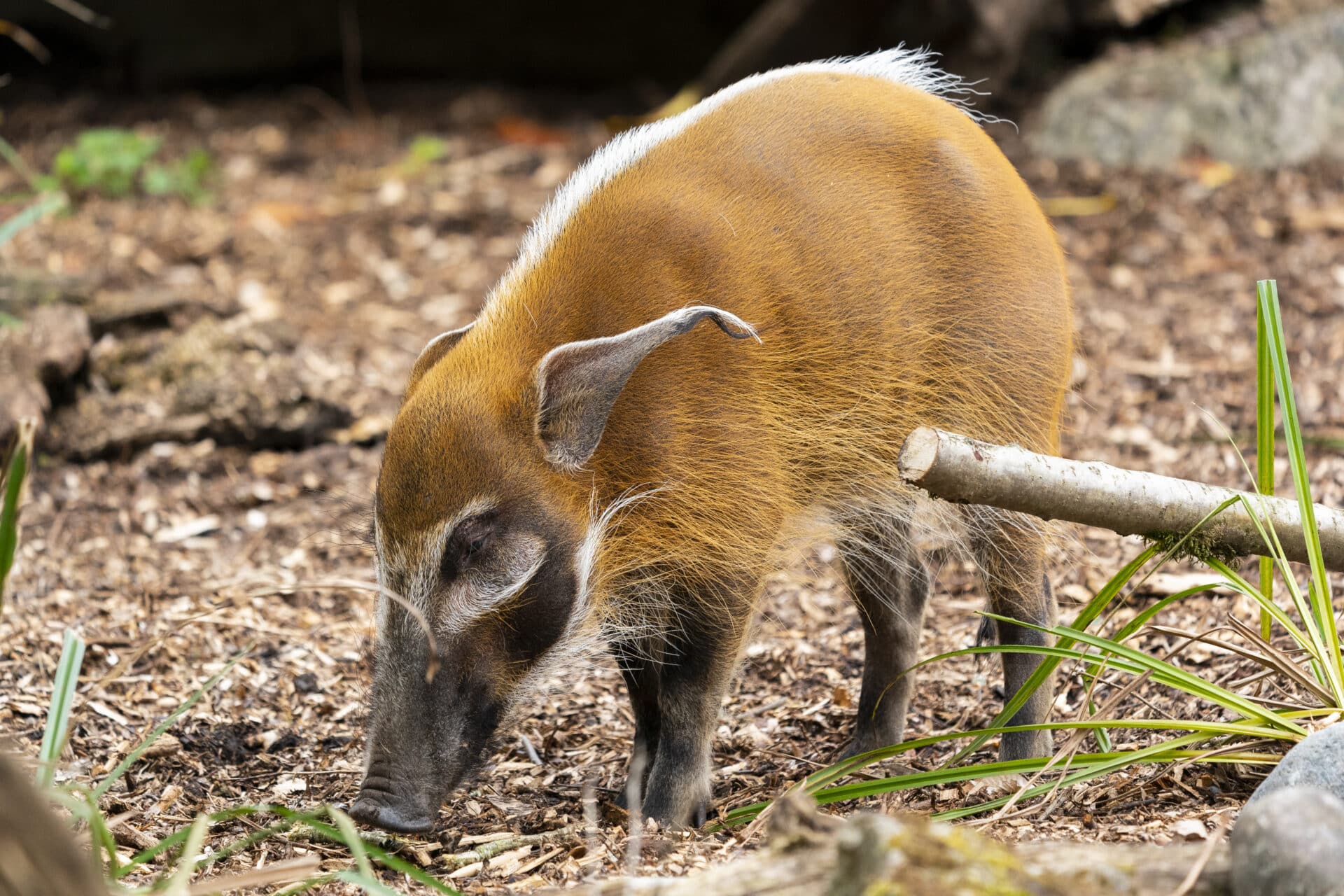Red river hog
Common Name: Red river hog
Scientific name: Potamochoerus porcus
Red river hogs are the smallest and most colourful of all the African wild pigs.
Red river hogs occupy a large home range covering between 3 to 6 km daily as they roam between feeding and resting areas.
Piglets are born dark brown with rows of pale, yellow spots to help camouflage them in the long grass.
Male red river hogs communicate their presence and status by ‘tusking’ which is the marking of trees with their tusks.
Fast Facts
-
Size
Head and body:
100 – 145 cm.
Tail length: 30 - 45 cm
-
Weight
45-115kg
-
Gestation
4 months
-
Young
1 - 4
-
Lifespan
10 to 15 years
In the wild
Red river hogs are omnivorous. They have a preference for roots and tubers, but will also eat grass, aquatic plants, fruit, carrion, and various small mammals.
Red river hogs thrive in swamp areas of Africa’s primary tropical rainforest but have also adapted to areas being regenerated after post-deforestation, where vegetation is dense and natural predators are few. They live in groups of between 6 to 20 individuals known as ‘Sounders’ and communicate using a variety of vocalisations.
Females can give birth to two litters of 1 to 4 piglets a year. Piglets are born within the sound’s home range in a sheltered hollow covered with vegetation. They spend the first two weeks with their mother here before joining the Sounder. Piglets are fully weaned on to solid food by 4 months.
The natural predators of the red river hog are leopards for whom they make up around 20% of their diet, also lions, spotted hyenas, and pythons. Red river hogs are very good swimmers and will take to the water in order to evade capture. They will also stand their ground as a group in order to protect their young.
Classified as Least Concern, there are no major threats to wild Red river hog populations. In some areas, however, there has been a significant increase in Red river hogs being hunted by humans in response to a growing trade in bushmeat.


